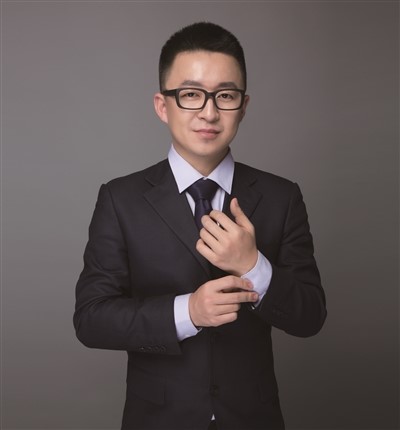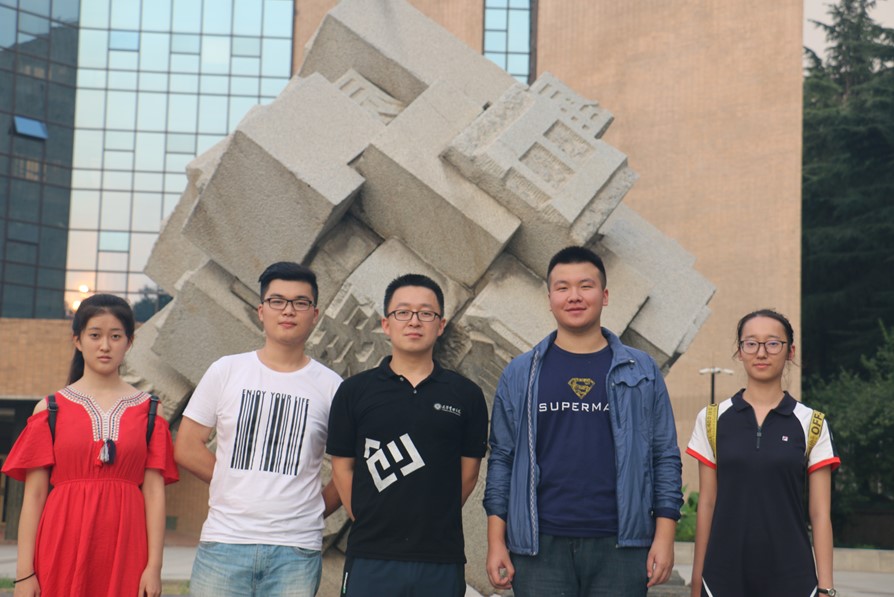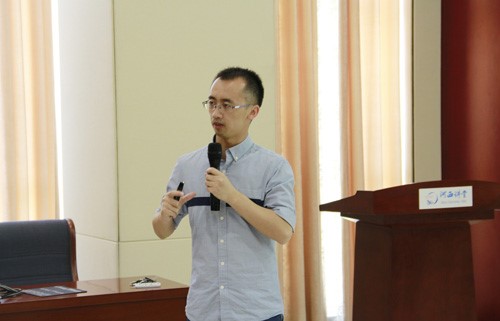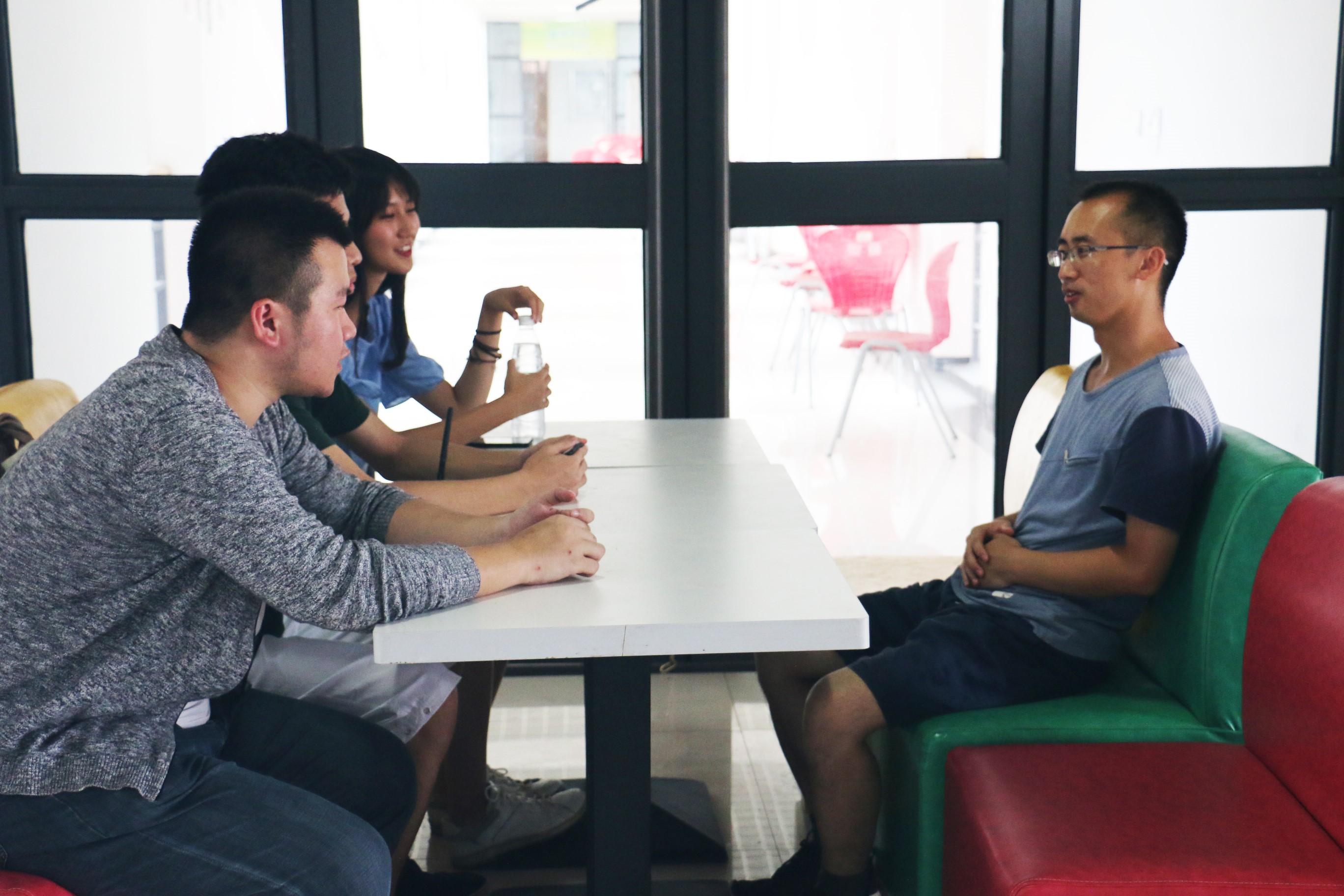Intergrated
The conversation with Dr.Jiang
16th August 2018, our team visited Doctor Yiliang Jiang from Xi'an Jinhua Ecological Technology Co., Ltd.

He is a doctor from Northwest A&F University and Chinese Academy of Science.
At the same time, he is the general manager of Xi'an Jinhua Ecological Technology Co., Ltd.
Xi'an Jinhua Ecological Technology Co., Ltd. is an agricultural environmental protection company providing environmental testing, soil testing and diagnosis, soil improvement and restoration, soil and water conservation, etc., with Shaanxi as the center and “China Agricultural Silicon Valley” – Shaanxi Yangling as the fulcrum National radiation, effectively promote the landing and promotion of scientific and technological achievements. In just over two years of establishment, they have accomplished ecological management in a variety of complex environments in many regions.
During the meeting, We got information about the currant situation of Chinese saline-alkali land and so on.

According to the talk with the him, we’ve learnt that nowadays only in China there were 550 million mu available saline and alkaline land resources in all kinds. In these fields, there are 185 million mu has prospect of agricultural utilization, which includes 153 million mu saline alkali wasteland unused and new-coming, 32 million mu saline alkali barrier land unreformed and 100 million mu saline alkali land which has improvement potential.
At the same time, the distribution of saline alkali land in China is imbalanced. It mainly distributes in Northeast region(30 million mu), Middle North region(15 million mu), Northwest region(30 million mu), Coastal area(15 million mu) and North China(10 million mu).
Dr. Jiang also introduced the basic principle of transform the saline-alkali land. That means moisture comes with salinity. Sometimes they combine with each other, but in other times they separate. In spring salinity comes back to soil and in autumn moisture from rainwater will absorb the salinity from the root layer of soil and so on.
But in these procedures we’ve found some key points that the transformation to the saline-alkali land can’t be once for all in many situation. Towards some saline-alkali land with big evaporation, it’ll be salinization again once stopped dealing. At the same time, since many governance means are based on water to appeal salt nowadays, it will cost a lot of water resource when declining the salt of soil.
After that, we introduced our project to Dr. Jiang. Our project is that leaving bacteria live and reproduce in soil permanently to appeal Na+ and K+ from surrounding soil so that the salinity of soil will be declined. Through our project, we can find a new method to transform saline-alkali land without water.
Dr. Jiang affirmed our thoughts. He thought this method had great prospects. Meanwhile he also pointed the soil had complex problems. So the bacteria we use and transform must be alive and keep reproducing in this environment. And biology genetic safety is also a key point.
We finished talking in ease atmosphere. By communicating with Prof. Jiang, we determined our direction of research more firmly. And we will regard the suggestions Prof. Jiang gave as reference while applying our method.

The conversation with Prof. Li
3rd August 2018, our team visited Professor Ming Li from Collage of Natural Resources and Environment in Northwest A&F University.

Prof. Li is majored in algology and algal biotechnology. What aroused our curiosity and thirst of knowledge is the contribution the professor did. So we visited Prof. Li with our project.
When we talked with Prof. Li, we introduced our project. Before our meeting, our project just aimed at declining the salt of saline-alkali land by using modified bacteria. However, Prof. Li put forward the shortage of our project, going straight to the heart of the matter. Whether the modified bacteria can survive and reproduce on natural saline-alkali land is a severe problem. Because natural soil can’t provide bacteria a suitable growth environment.

While our project was caught in helpless, Prof. Li gave us a train of thought that we can change our sight from soil into water. Modified bacteria has higher rate of survive in water than soil, and it’s easy to reproduce. If we use this method to decline the salt of sea water or cleanse the wasted and polluted industrial water, there will be a huge environment benefit and economic benefit.
Thanks to the points Prof. Li gave, our direction of project had changed a lot. The aim had changed from soil into soil and water conservation and our benefits became larger. At last, Prof. Li expressed great support and expectation to our project and he wished us a great grades in Jamboree.


